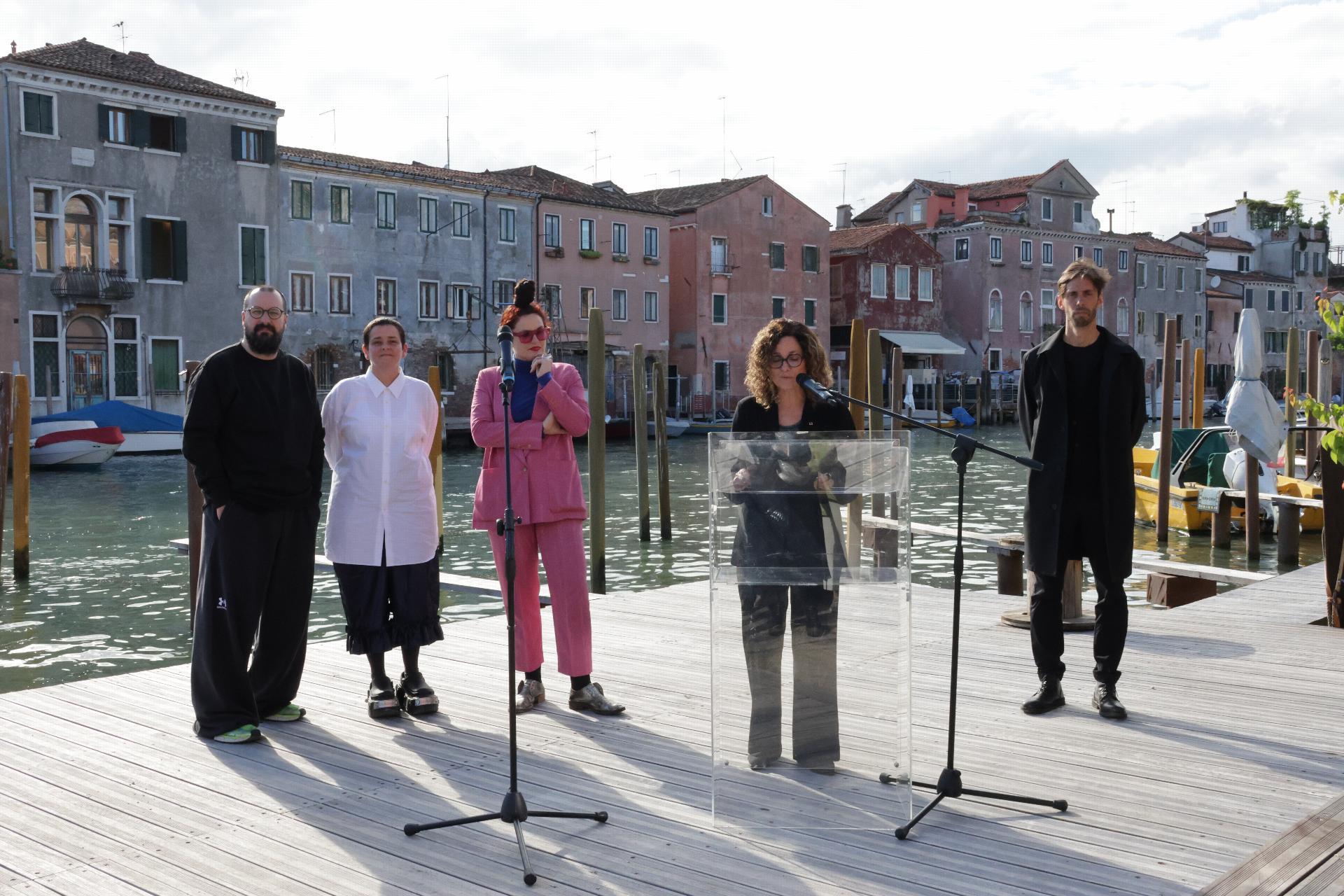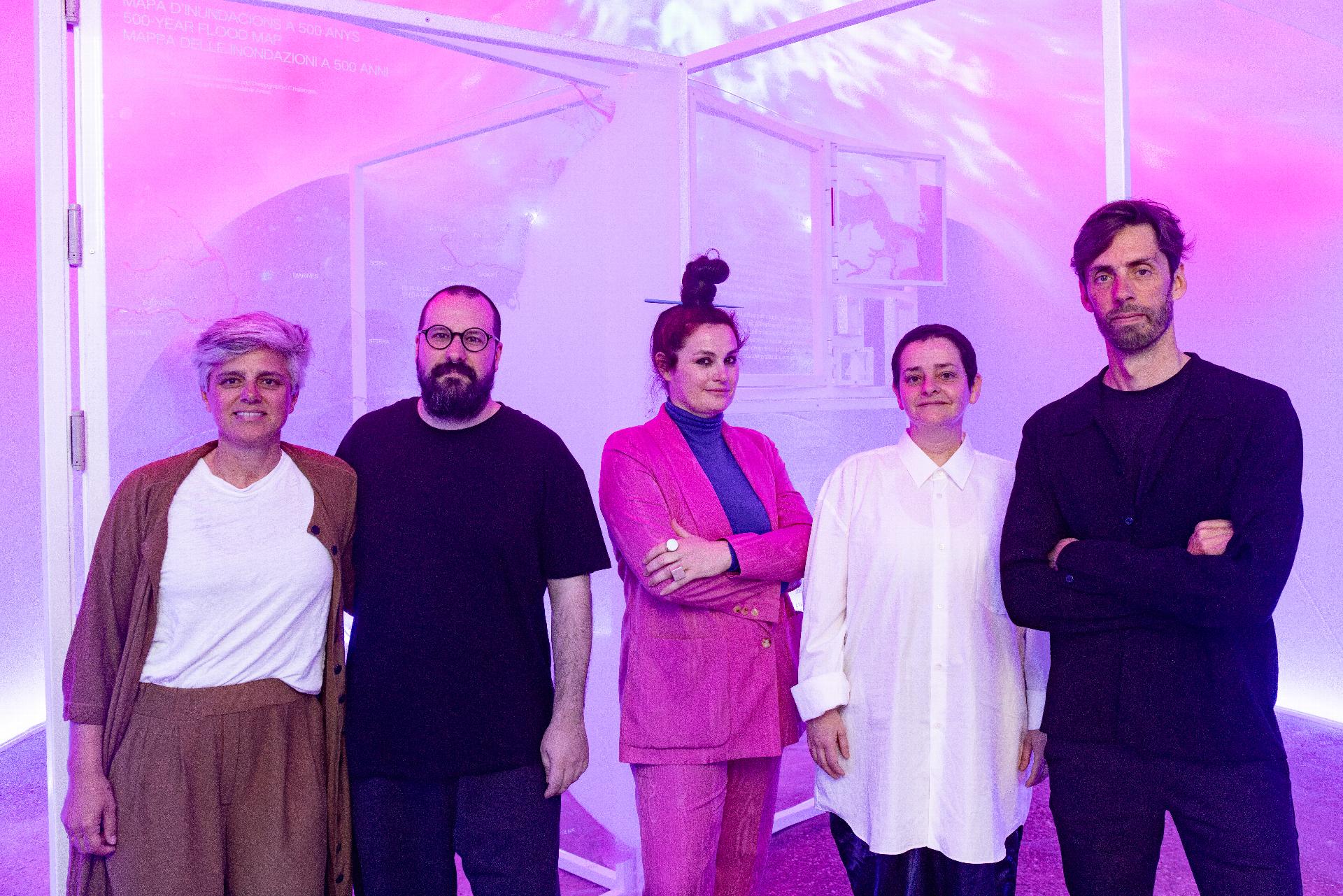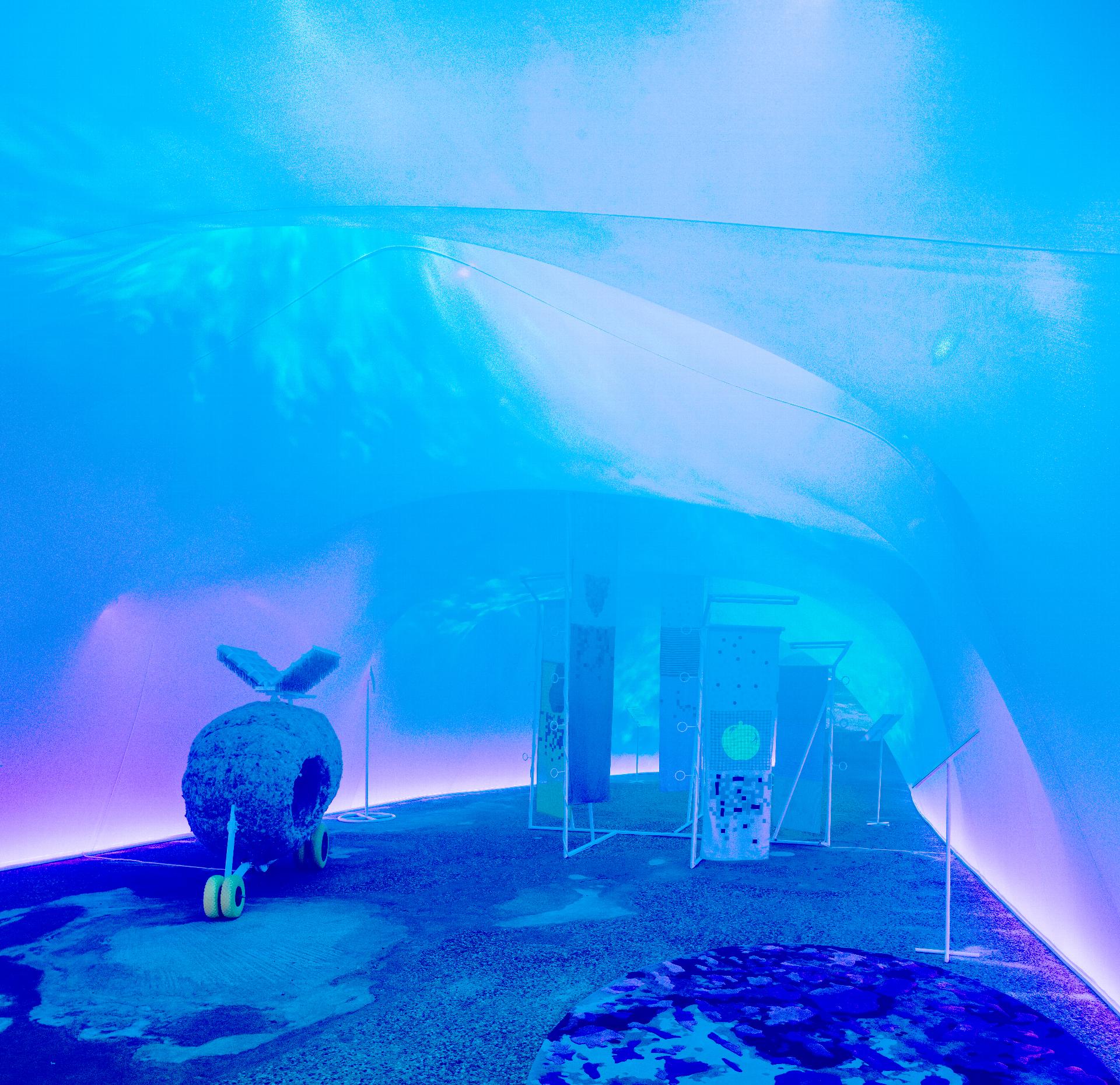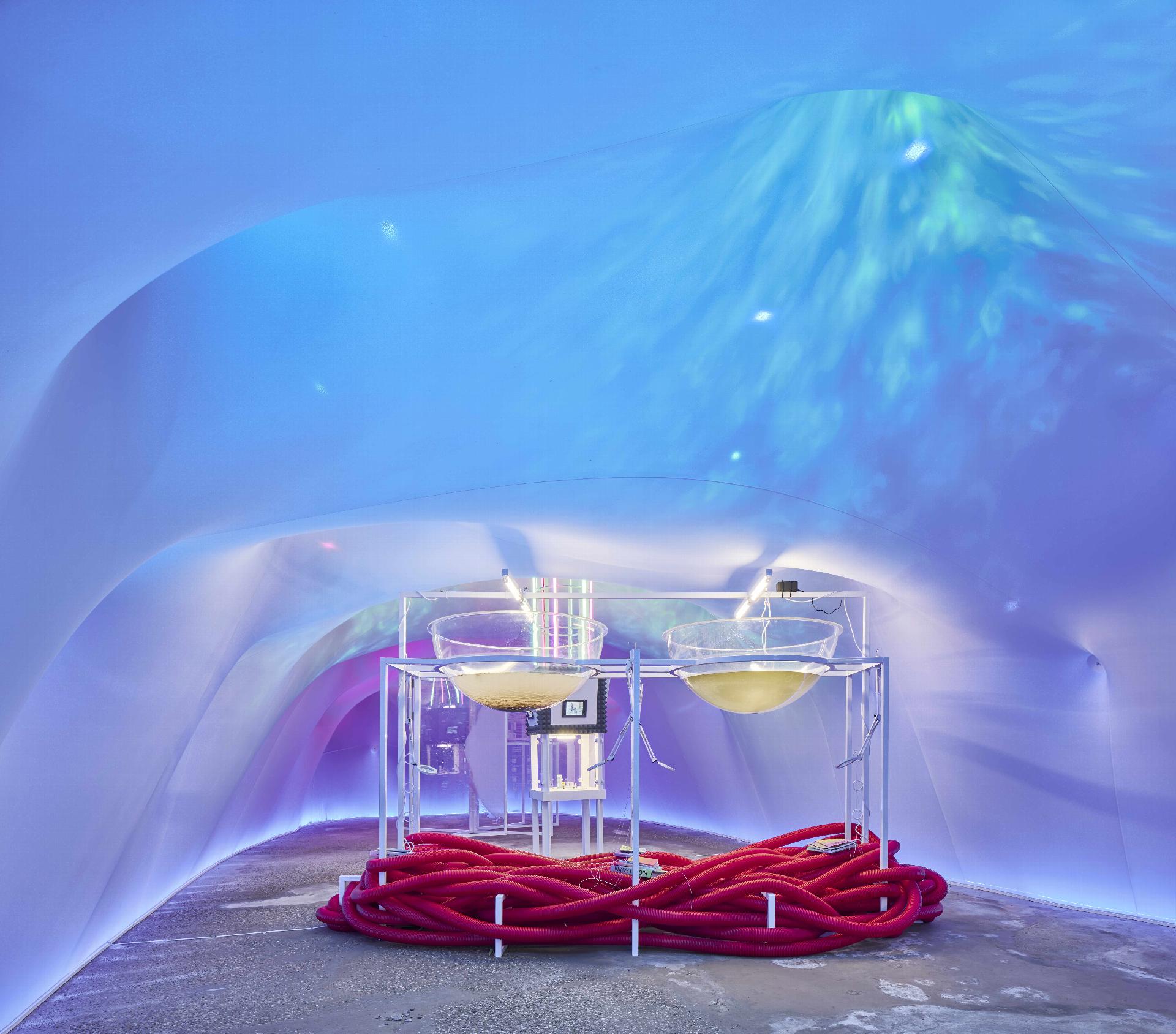This Thursday, Water Parliaments: Projective Ecosocial Architectures opened in Venice, as part of the 19th International Architecture Exhibition. Eva Franch, Mireia Luzárraga, and Alejandro Muiño present a vision of architecture as a tool for critical speculation and collective action.
The Catalan Minister of Culture, Sònia Hernández Almodóvar, stated that “the exhibition exemplifies contemporary Catalan architecture, which is dynamic, rooted in its territory, and engaged with present challenges. It starts from a local approach to address global issues such as the climate crisis, the management of natural resources, the right to housing, environmental justice, and the memory of places, contributing to imagining fairer, more sustainable, and respectful futures".
For his part, the director of the Institut Ramon Llull, Pere Almeda, remarked that “this is a very ambitious project that integrates a multidisciplinary perspective and aims to be a catalyst for the changes we need". Almeda added, “this year, the Catalan presence at the Venice Biennale is exceptional, and we are very proud to contribute a unique voice to this internationally significant platform".
Eva Franch emphasized that “we want to offer spaces for possibility and community empowerment that contribute to social, political, and ecological responses", and added: “If we are water and everything around us is architecture, then all architecture is water". Alejandro Muiño stressed that their project does not approach water solely as a resource but as a political subject, while Mireia Luzárraga highlighted the opportunity it provides to map and integrate water-related issues from across the globe.
Water Parliaments: Projective Ecosocial Architectures presents architecture as activism and a space for reflection and design at multiple scales, through four key components:
The Future Labs: Through multidisciplinary workshops held across Catalonia, the Balearic Islands, and the Valencian Community, the voices of scientists, artists, farmers, and activists have been gathered. These sessions collectively identified both individual and transversal conflicts to explore present and future scenarios for sustainable water use and multispecies coexistence. Local knowledge has been brought to the forefront to imagine innovative strategies in response to the climate crisis, forming the basis for the work presented at the Biennale Architettura 2025.
The Exhibition: A former naval construction space has been transformed into a water parliament. At the entrance, a short film introduces the seven themes that frame the exhibition’s case studies. After the screening, a suspended tensile fabric membrane inside the building’s structure hosts seven installations that encourage urgent reflection, critical discussion, and active participation from communities, architects, and policymakers. Periodic fog cycles transform the space into a constantly shifting atmosphere.
The Open Call for the ATLAS of Water Architectures: This is the heart of the project. It invites architects, artists, academics, independent researchers, activists, institutions, and organizations worldwide to submit built, speculative, or forward-thinking projects that interrogate and reimagine our collective relationship with water. By putting these proposals in dialogue, the ATLAS seeks to stimulate informed debate and foster international collaboration towards more sustainable water futures. The initiative aims to build a critical and global repository that centers ecosocial perspectives and celebrates practices that challenge dominant paradigms while proposing transformative visions for water management and architecture.
The Book “100 Words for Water: A Vocabulary”: This is a collaborative effort by thinkers, scientists, activists, philosophers, and architects from around the world to create a conceptual toolkit that redefines our relationship with water in a context of growing ecological urgency. Words not only describe the world, but they also actively shape it. Every architectural idea, every cultural shift, begins with language—with new terms that emerge when existing ones no longer suffice to describe new realities. Edited by curators Eva Franch i Gilabert, Mireia Luzárraga, and Alejandro Muiño, the publication is jointly promoted by the Institut Ramon Llull and the Architects’ Association of Catalonia (COAC) and published by Lars Müller.
Next year, Water Parliaments will be part of the exhibition at the 2026 World Congress of Architects of the International Union of Architects (UIA) in Barcelona (Spain).
Next year, Water Parliaments will be part of the exhibition at the World Congress of Architects of the International Union of Architects 2026 (UIA) in Barcelona.
The Institut Ramon Llull produces and organizes the participation of Catalonia and the Balearic Islands in the Eventi Collaterali of La Biennale di Venezia and has taken part in the Architecture Biennale since 2012 and the Art Biennale since 2009. Each year, a different committee of experts selects the project to be presented.
Eva Franch i Gilabert (Delta de l’Ebre, 1978) is an architect, curator, researcher, and professor at UMPRUM in Prague. She has directed institutions such as the AA Architectural Association in London and the Storefront for Art and Architecture in New York, and has taught at Cooper Union, Princeton SoA, Rice University, and Columbia University GSAPP, among others. She has curated over 30 exhibitions worldwide, from Taipei to Buenos Aires and Berlin, exploring the future through art, design, and architecture.
Mireia Luzárraga (Madrid, 1981) and Alejandro Muiño (Barcelona, 1982) lead the architecture and research studio TAKK, based in Barcelona and New York. Their work integrates feminism and ecology to promote more just living environments. Luzárraga is an adjunct professor at Columbia University GSAPP in New York, and both are visiting professors at the University of Tokyo. They have received awards such as “Design Vanguard 2024” and “FAD 2023,” and their work is part of collections including the FRAC Centre, the Vitra Design Museum, and DHub Barcelona.
#WaterParliamentsBiennale










